Review: THE SAN DIEGO OPERA'S PUCCINI DUO at San Diego Civic Center Theater
Powerful Tragedy and Delightful Comedy in Two One-Act Operas
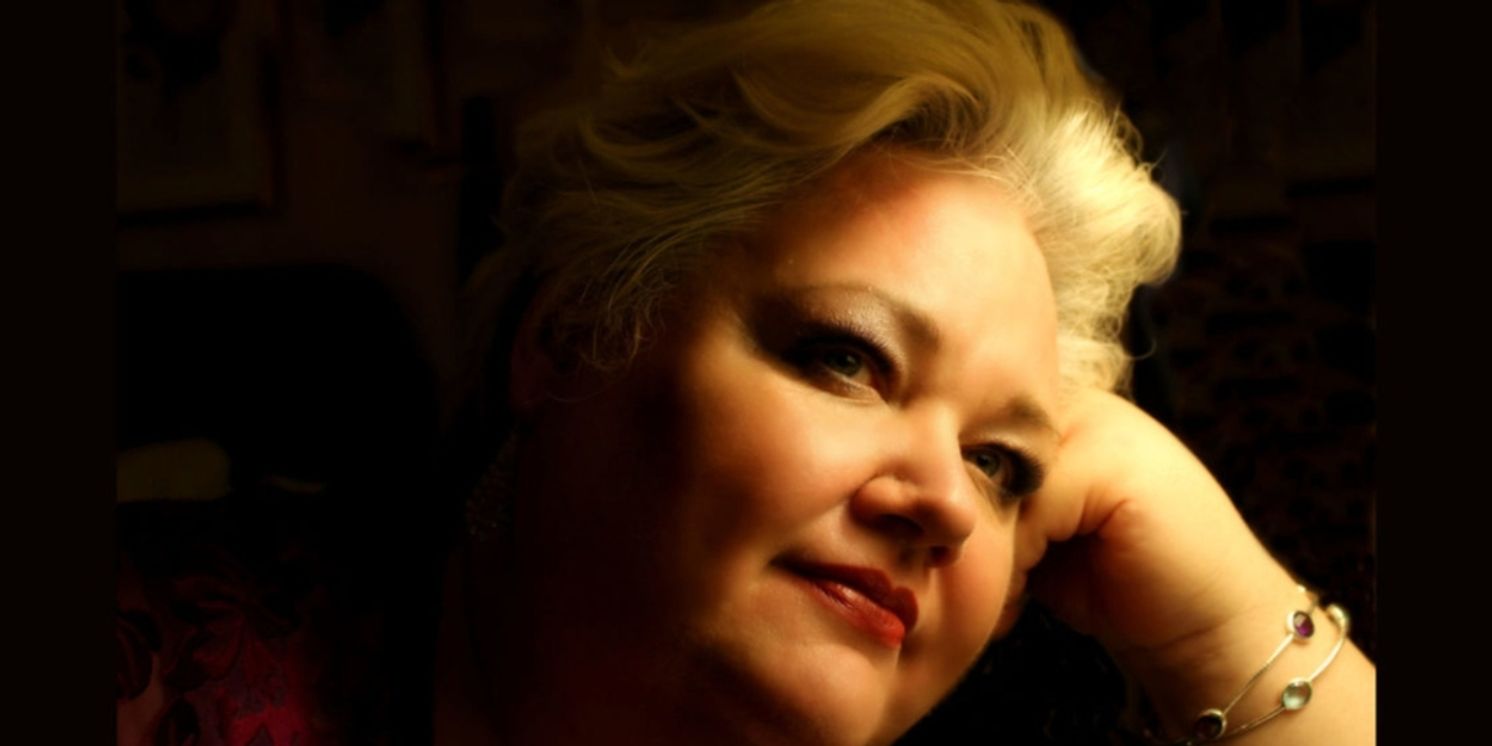
The big question for the evening was how mezzo-soprano Stephanie Blythe would do as the first woman in professional opera to sing the baritone title role in Gianni Schicchi. But the question wouldn't be answered until the second one-act opera in San Diego Opera's "Puccini Duo." Blythe was first a contralto as the stern, unfeeling Principessa in Suor Angelica. This crushingly poignant half of the Duo is set in a 17th-century Italian convent where Sister Angelica has been living for seven years after her family banished her for the sin of giving birth to a boy out of wedlock. The one-hour opera builds slowly from a choir of offstage convent sisters singing adoringly of the Virgin Mary. From its first appearance
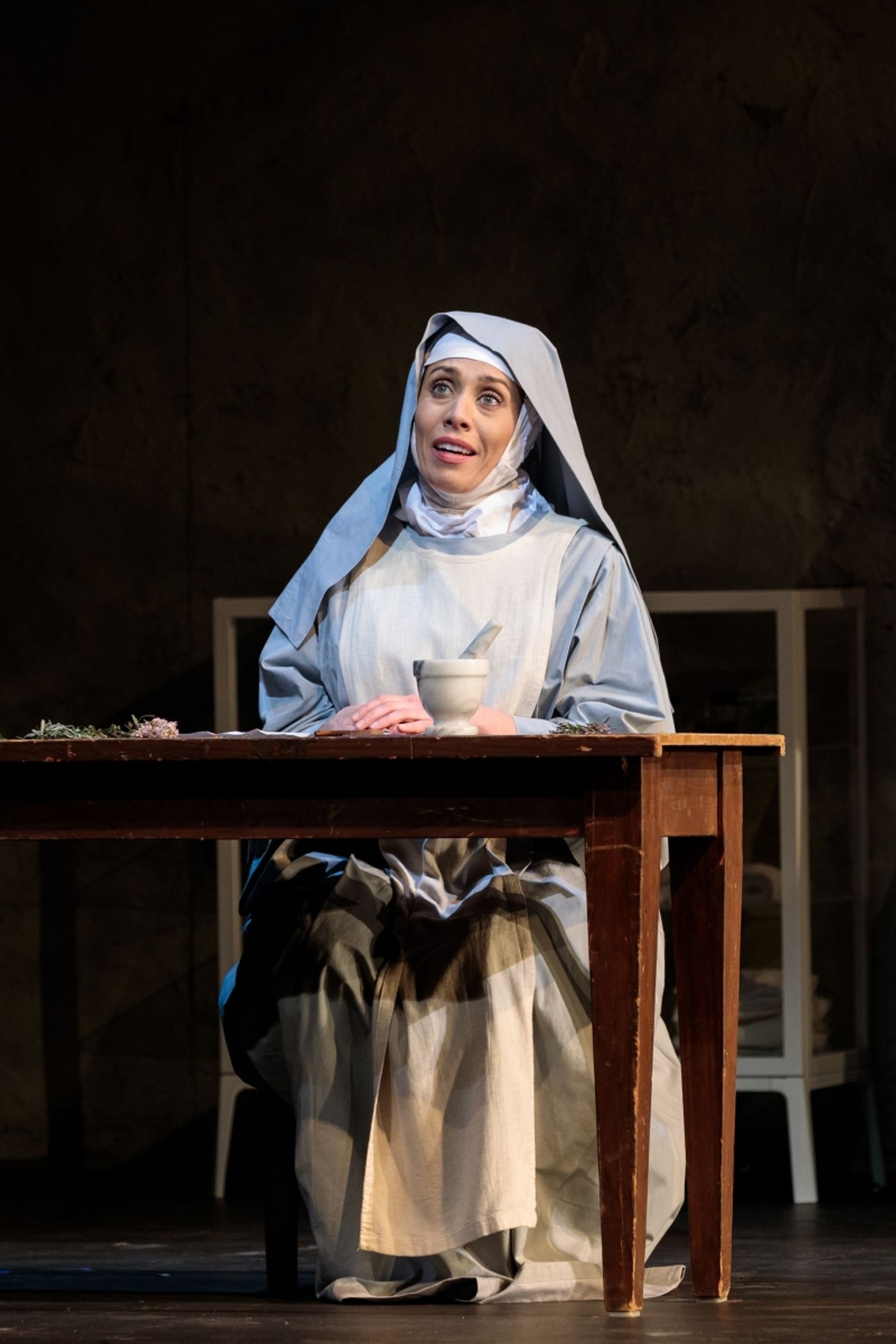
the Opera company's choir led by Chorus Master Bruce Stasyna sang with a solemn warmth consistent with the convent setting. When the sisters reach the stage, a monitor becomes the center of attention as she sings of a succession of minor sins and their punishments. Two sisters lose a day of holy celebration for arriving late to services, another is sent to her room for hiding two red roses in a sleeve of her habit.
In the current age of viral 6-second videos, the depiction of innocent devotion and sin goes on too long, despite Puccini's lyricism. But it's a setup. The mood changes abruptly from light to pitch black upon the arrival of the Principessa, sister Angelica's aunt, played with repellent cruelty by Blythe. At first Angelica is excited at the arrival of the first family member to visit since she entered the convent. She thirsts to hear something of the son she was forced to
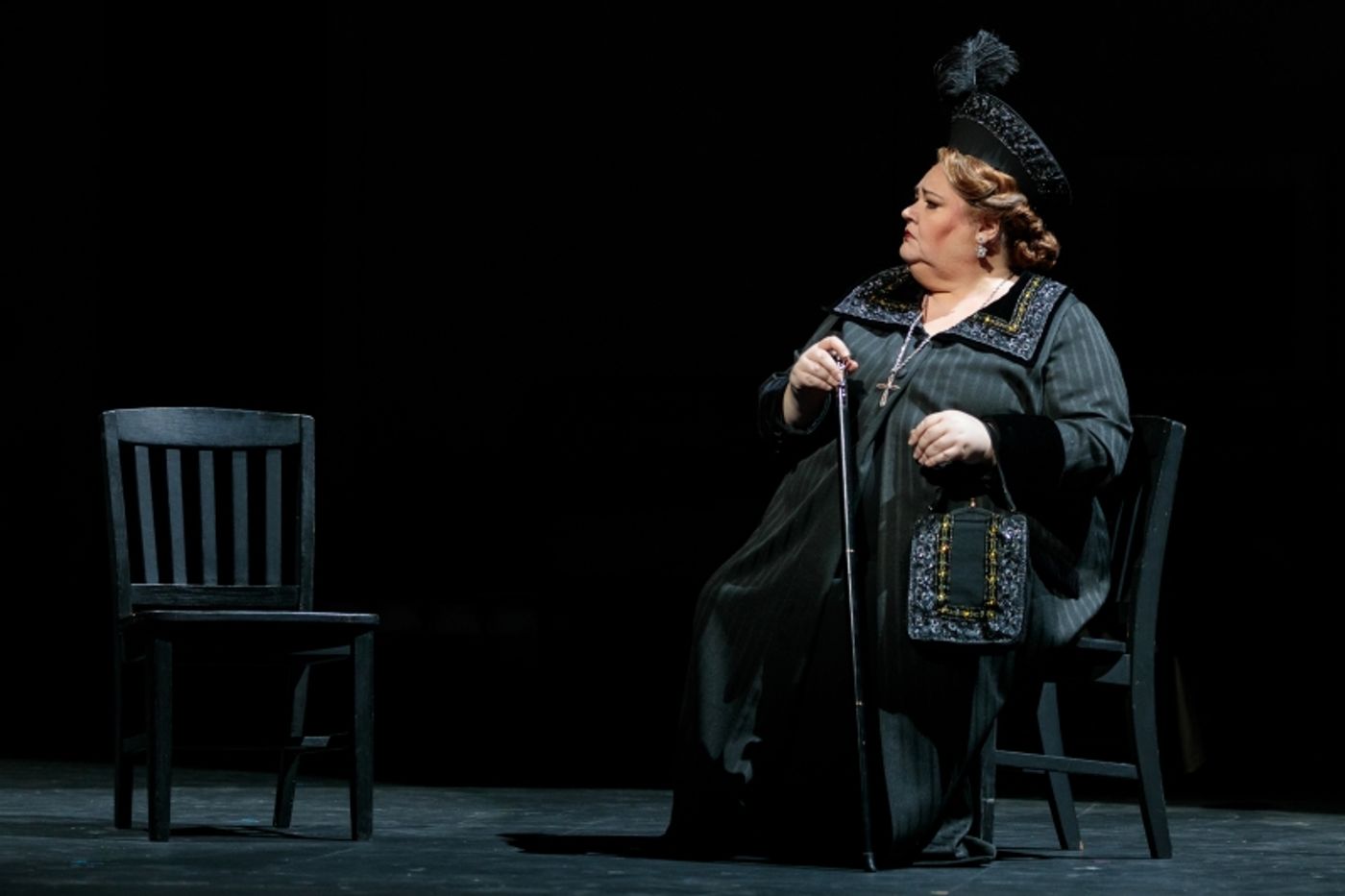
abandon. Her excitement turns to inconsolable grief when her aunt finally reveals the purpose of her unexpected visit. The scene between Soprano Marina Costa-Jackson as Angelica and Stephanie Blyth as her aunt is the core of the opera, and it was superbly sung and acted, bringing the stage to life with Angelica's agony and the Principessa's cold haughty disregard for it.
After her aunt leaves, Angelica quietly prepares a poison that will end her life. Costa-Jackson's rich pleasing soprano and effective acting brought tears as she imagines reuniting with her son. But in the end an equally pitying angel arrives in a poignant miracle of redemption.
Just as Puccini and librettist Giovacchino Forzano used gentle innocent devotion to increase the impact of subsequent emotional turmoil, the tragedy that preceded Gianni Schicchi served to heighten its comic effectiveness. So did a set change from the stark simplicity of a convent to a colorful, busy multi-level bedroom in the home of a mid-20th
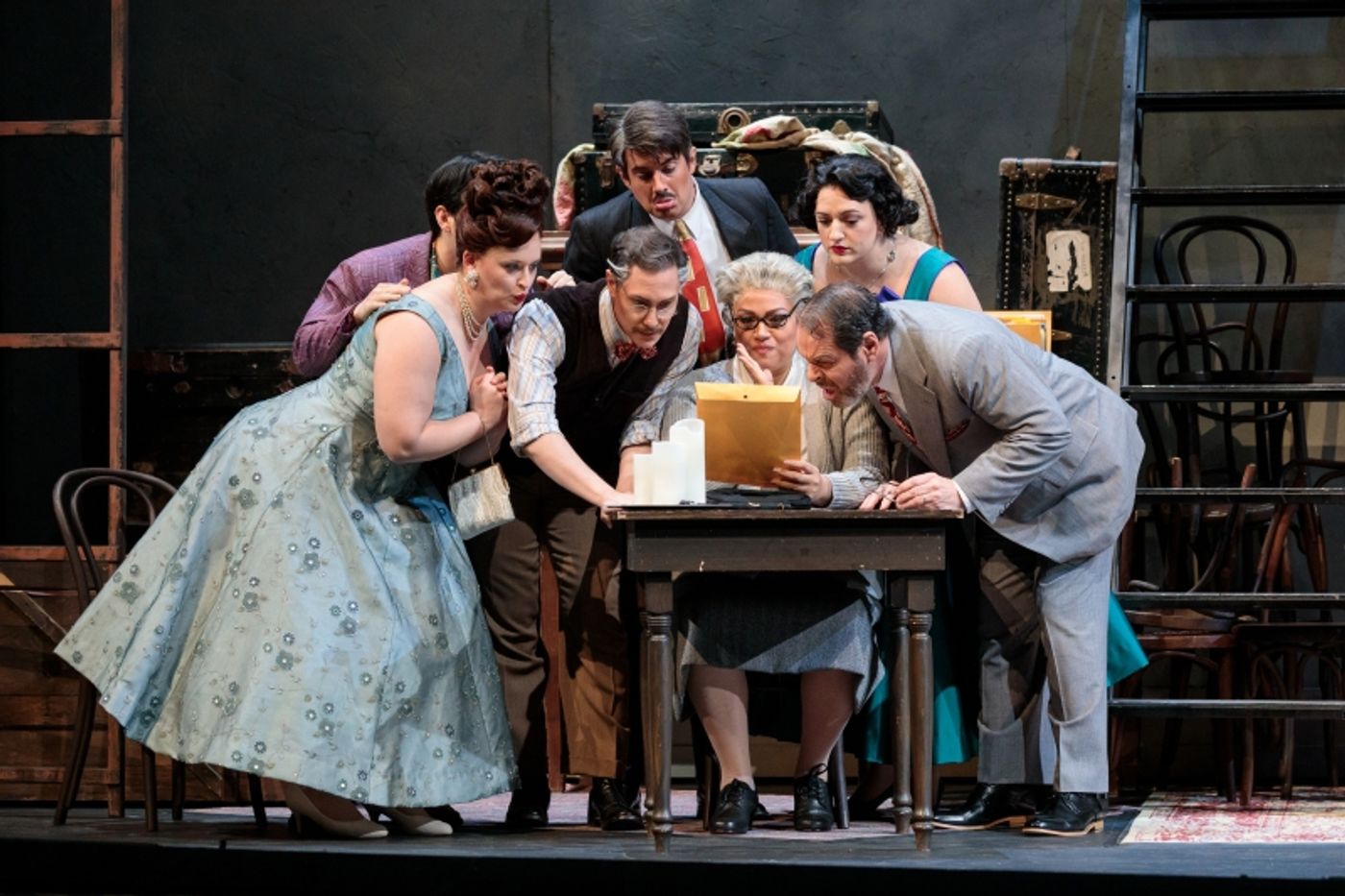
Century Italian. Tim Wallace's set was an effective update from Puccini's original pre-Renaissance choice. It seemed a zany Broadway production with the addition of exciting singing.
The action lived up to the set. Donati family members are scattered around the bedroom where patriarch Buoso Donati lies in death. They vie with each other in expressing the depth of their grief until Betto di Signa (Colin Ramsey), Buoso's brother-in-law, whispers that it's rumored Buoso has left everything to a monastery. Mourning turns to outrage, the most visible manifestation of which is a rude Italian gesture at the bedside. A frantic search for the will ensues, cleverly choreographed by Stage director Kyle Lang. The will is found amid whirling sheets of flying paper, and it confirms the rumor. But no one outside of the room knows Buoso has died. Can anything be done to ensure a more pleasing distribution of his wealth? Working in choreographed synchrony, the family implausibly prevents the doctor from seeing the body as they tell him the patient has had a surprising recovery. He promises to return again later.
The family decides to call on the devious Gianni Schicchi to salvage their inheritance and
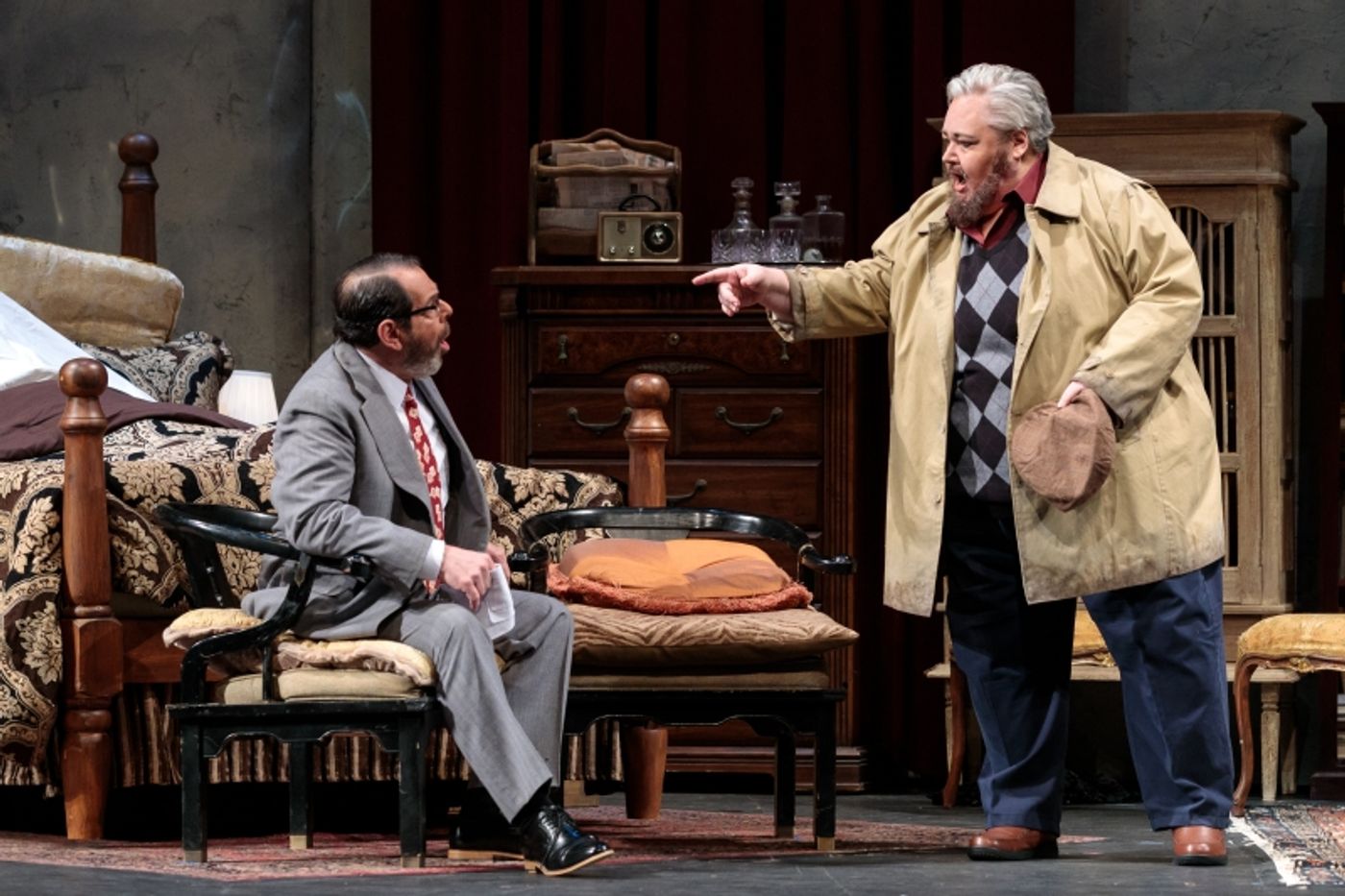
baritone Stephanie Blythe arrives in a costume of wig, facial hair and men's clothing, a comic opposite of the stern Principessa of Suor Angelica. But for advanced publicity, few would have recognized her or even suspected it wasn't the usual male baritone. Nor would her spoken or singing voice have offered a clue.
At first, even Schicchi sees no way around the will, though he too has an incentive. His daughter Lauretta is to marry Rinuccio, Buoso's nephew, and there'll be no wedding if the the will stands. Schicchi is poor, and the family, no longer wealthy themselves, wouldn't accept a bride without a dowry. The dilemma leads to another
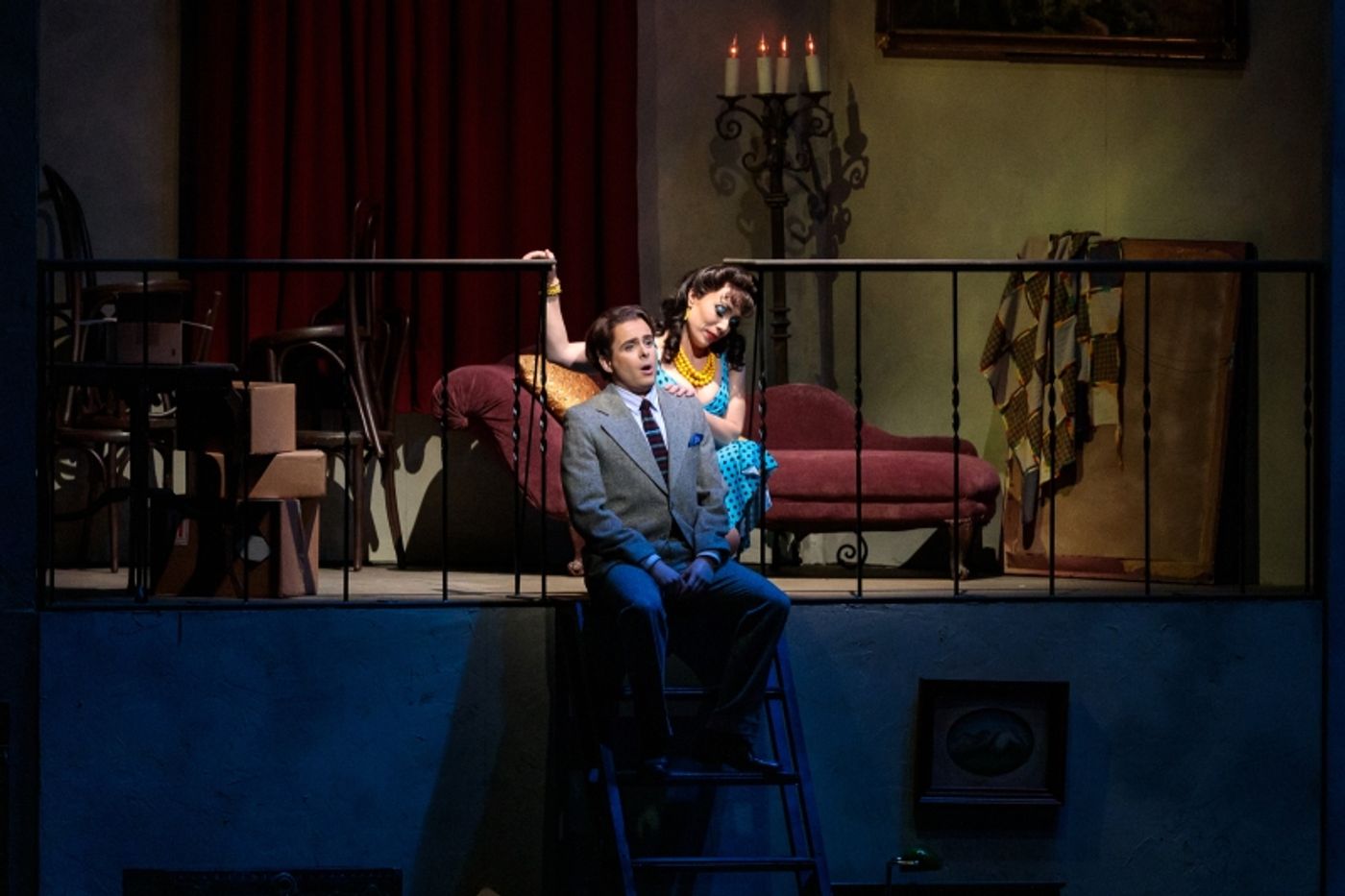
anticipated moment, Lauretta's pleading aria O mio babbino caro (Oh my dear Papa). Costa-Jackson didn't disappoint, no easy feat with an aria loved by even those who hate opera. Car companies even use it in commercials. When Lauretta sings that she'll jump into the Arno if there is no marriage, Schicchi plots anew.
Tenor Piotr Buszewski impressed as Lauretta's young lover Rinuccio. His winning voice carried well, even through a facemask donned because of a recent recovery from COVID.
Note that Blythe wasn't the only intermission transformation. Costa-Jackson's nun, demurely clad as she faces devastating news, brought tears. But as Lauretta in a sexy bright-blue dress, she brought some of the evening's biggest laughs, and Blythe brought more when Schicchi finally agreed to replace Buoso in the patriarch's death-bed. Having succeeded as a baritone, her voice changed hilariously to the croaky one of a feeble old man to fool the returning doctor and then an attorney who will record a new will with provisions Schicchi dictates. I'll let you guess what could go wrong for the family.
San Diego Opera's Principal Conductor Yves Abel led the San Diego Symphony musicians through the changing moods of the score, reinforcing emotions from Angelica's guilty sorrow to the intentionally over acted comedy of Schicchi and company, And Ingrid Helton's colorful period costumes added to the color and lighthearted feeling of the second of the two operas.
Photos courtesy of San Diego Symphony.
The Puccini Duo completes a four-performance run on February 17 and 19. Time and ticket information available at the company's website.
Reader Reviews
Videos

